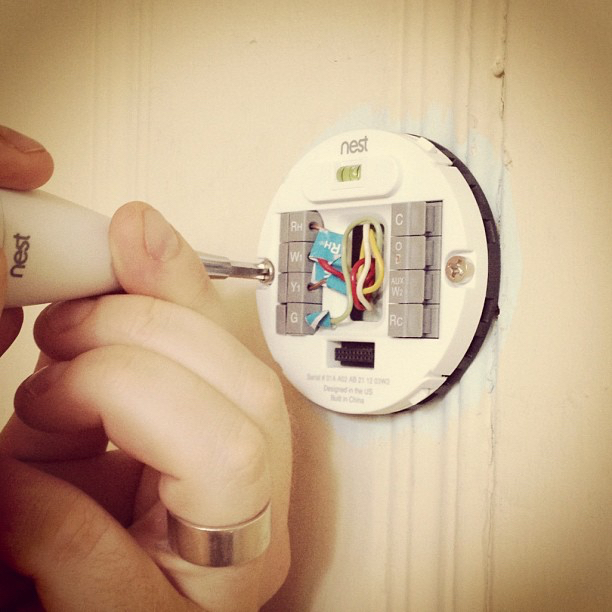
Image Credit: Design Milk via Flickr
By the end of this year, nearly half of all new thermostats sold will be internet-connected “smart” devices as more consumers take the first steps toward creating a digital smart home, Greentech Media reports.
Citing new market research from Parks Associates, the website reports that fully connected homes aren’t in the cards for most consumers, but a growing number of homeowners are buying and installing the devices. Buying habits also are shifting as more people buy the thermostats directly from retail stores or through HVAC specialists rather than from utilities.
Smart thermostats, like the Nest, allow homeowners to monitor and control temperatures with their smart phones of other wi-fi connected devices. A variety of similar web-accessed tools are becoming available.
By 2017, Parks Associates predicts that the total number of thermostats sold will top 10 million, with smart thermostats accounting for more than half of that, a chart accompanying the Greentech Media report indicates.
The trend is an opportunity for utilities, the report said. One in five broadband households surveyed by Parks last year said they would be likely to switch to an energy provider that offered monitoring services. Utilities will be able to use data collected from thermostats to fine-tune demand-response programs, Greentech Media said, and they can use smart meters to offer the types of monitoring services that consumers want.
As an example, the report noted that an analytics company called Bidgely last fall landed a deal with the Texas energy company TXU Energy to provide cloud-based “disaggregation” services capable of offering customers detailed information about energy use. The software is able to recognize patterns in the use of electricity at the appliance level and to warn customers that a swimming pool pump or an air conditioner, for example, wasn’t working properly.
Weekly Newsletter
Get building science and energy efficiency advice, plus special offers, in your inbox.














0 Comments
Log in or create an account to post a comment.
Sign up Log in